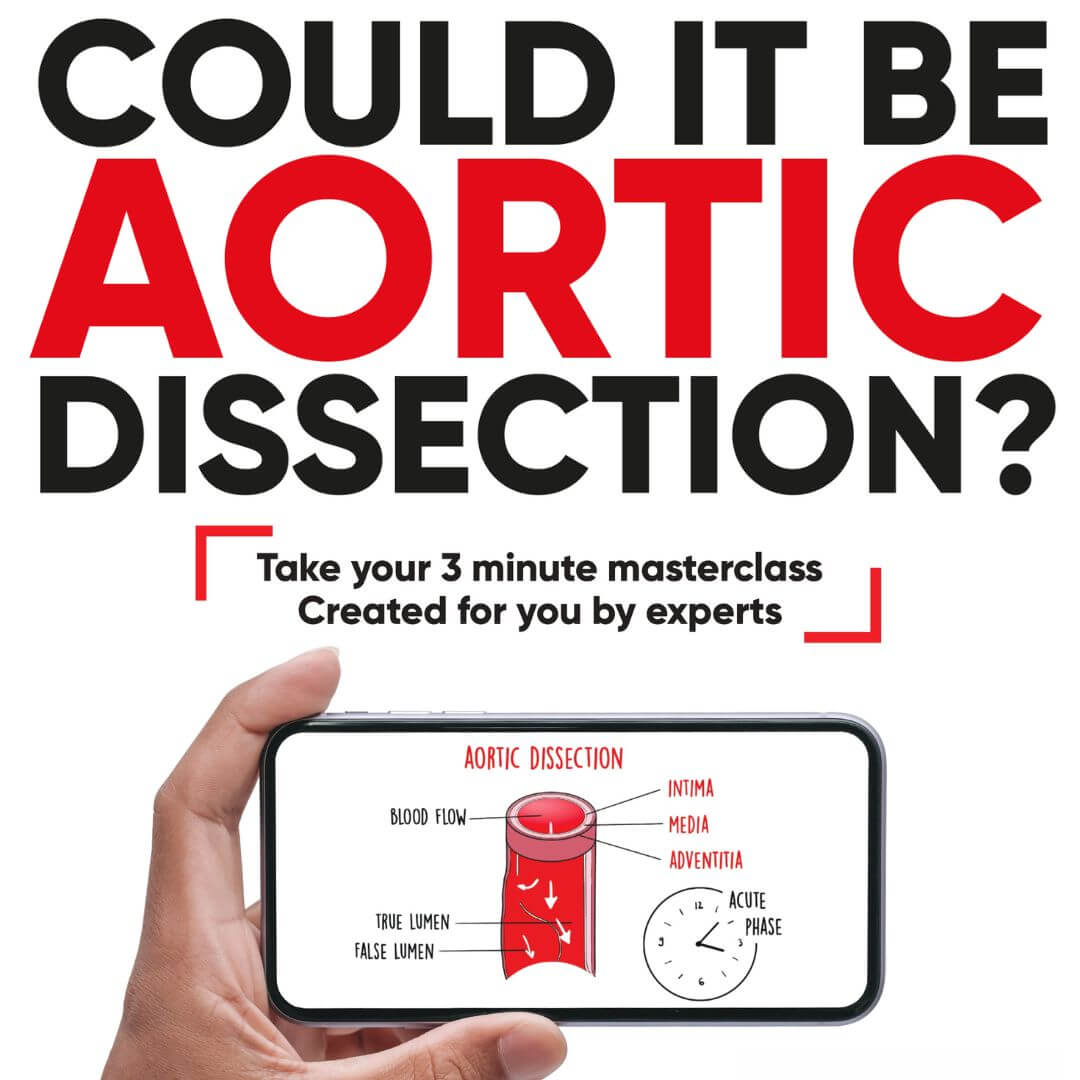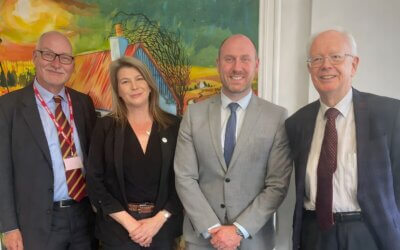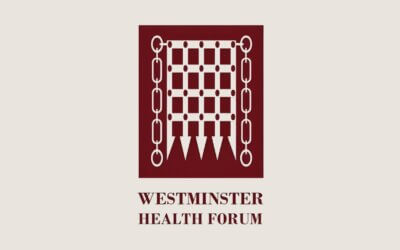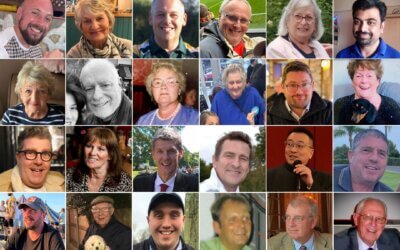The Improve Aortic Dissection Care in the UK, Europe and Beyond HVC Quality & Safety Grand Rounds organised by the Yale Center for Thoracic Aortic Disease and facilitated by Dr John Elefteriades provided critical insights into the paramount importance of patient safety and quality care for aortic dissection patients.
This meeting showcased the patient-led work of the aortic dissection charity with trustee Catherine Fowler’s keynote speech, drawing on her personal experience to advocate for improved care.
A significant portion of the session was dedicated to the discussion of the work in the UK in enhancing the diagnostic capabilities of HCPs when faced with potential cases of aortic dissection. The discussions centred on the critical signs and symptoms that should trigger suspicion of this condition, aiming to equip emergency departments with the knowledge and skills needed to identify aortic dissection promptly. This focus on early and accurate diagnosis is crucial, as timely intervention can significantly impact the treatment outcomes and survival rates of patients with aortic dissection.
Catherine discussed the novel preventative strategy headed by the Trust that involves the proactive engagement of families with a history of aortic dissection. This approach aims to identify at-risk individuals through early testing, thereby potentially reducing the incidence of emergency, acute presentations of AD. Working with the NHS, enabling families to undergo genetic screening and counselling, healthcare providers can work towards preventing the onset of aortic dissection in susceptible individuals, shifting the focus from treatment to prevention and thereby altering the landscape of care for this life-threatening condition.
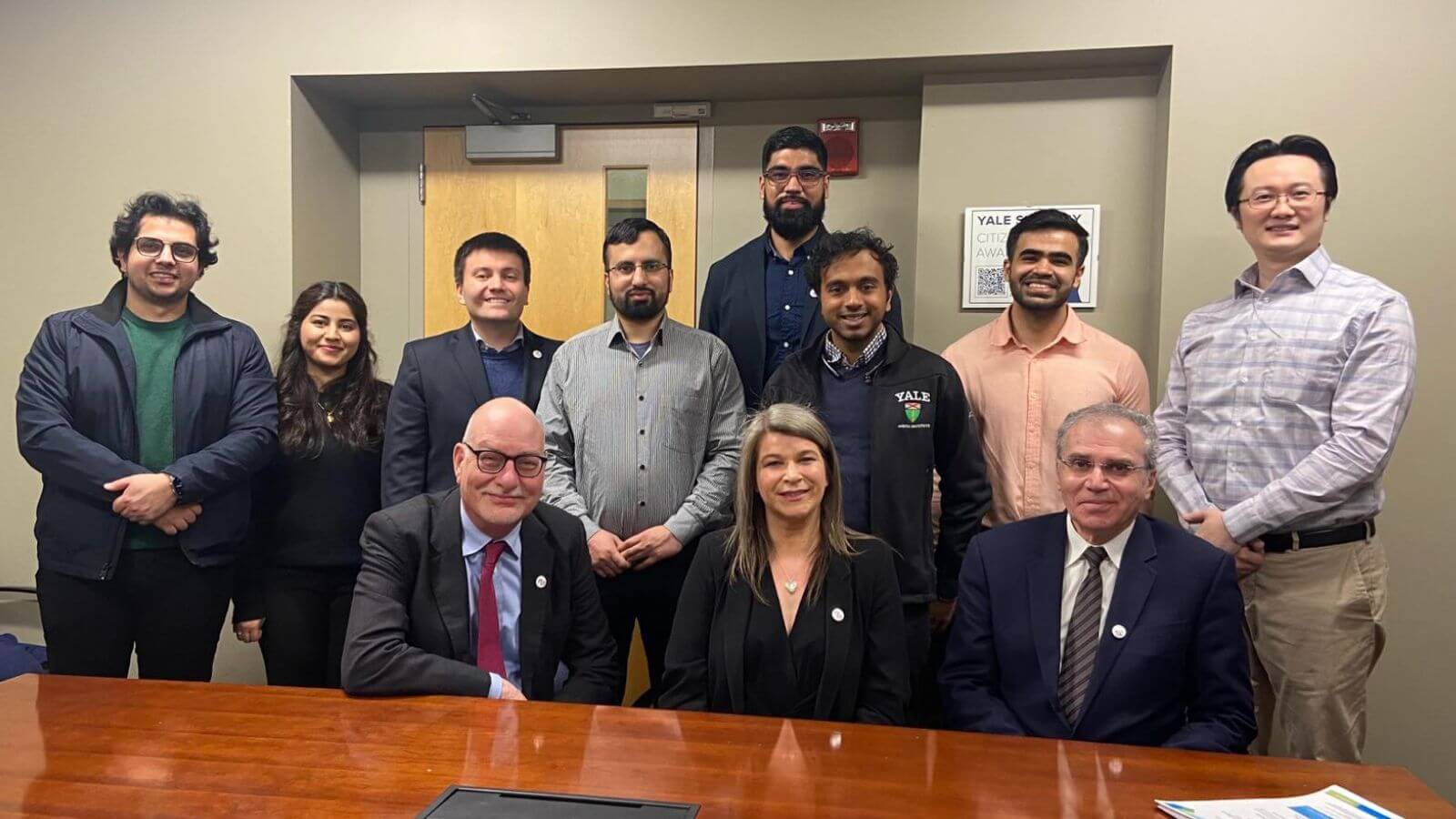
Cardiac Surgery Center for Advanced Thoracic Aortic Disease, Research Team, Aortic Institute at Yale
Many distinguished clinicians in the audience expressed their congratulations for the extremely important and effective work already accomplished by the Charitable Trust over its relatively short tenure. Dr Elefteriades thanked Catherine and the distinguished surgeon Mr Graham Cooper for their efforts via the Charity, which has already achieved a quantum improvement in awareness of aortic dissection by the general public and registered aortic disease firmly in the consciousness of Emergency Physicians in the United Kingdom, Europe, and beyond.
The Vision for Global Collaboration
Catherine emphasised the value of collaboration, highlighting the charity’s work in fostering partnership with the UK, Irish and global medical, research and charitable sector to share resources and strategies to address the challenges of aortic dissection care. Her statement on the charity’s active engagement in collaboration underlined the commitment to shared goals in aortic health.
HVC Quality & Safety Grand Rounds is an important platform for sharing knowledge and fostering collaboration among peers within the AD field. The duality of global standards and local application forms a foundation for improving aortic dissection care on a wide scale, ensuring that best practices can be tailored and implemented regionally.
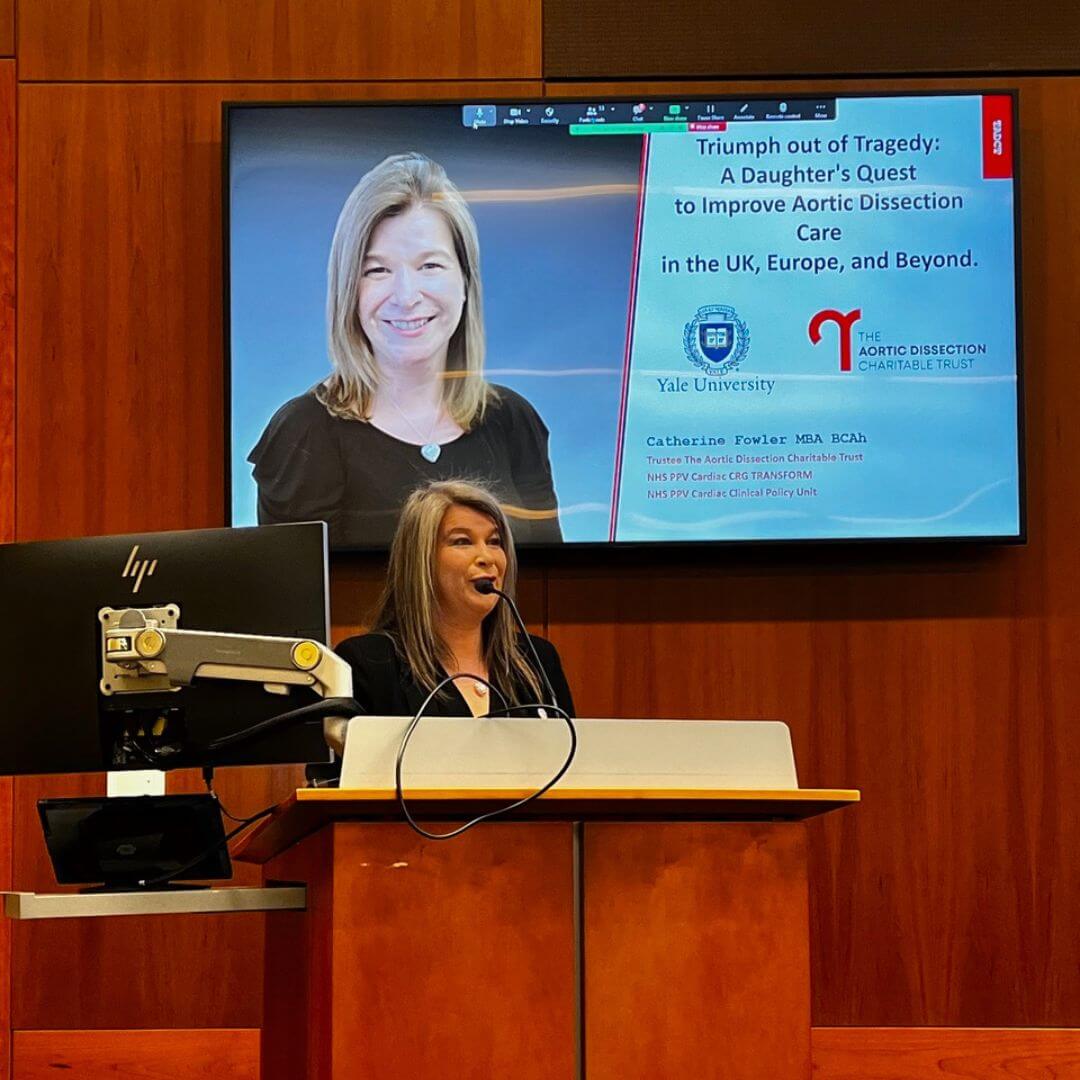
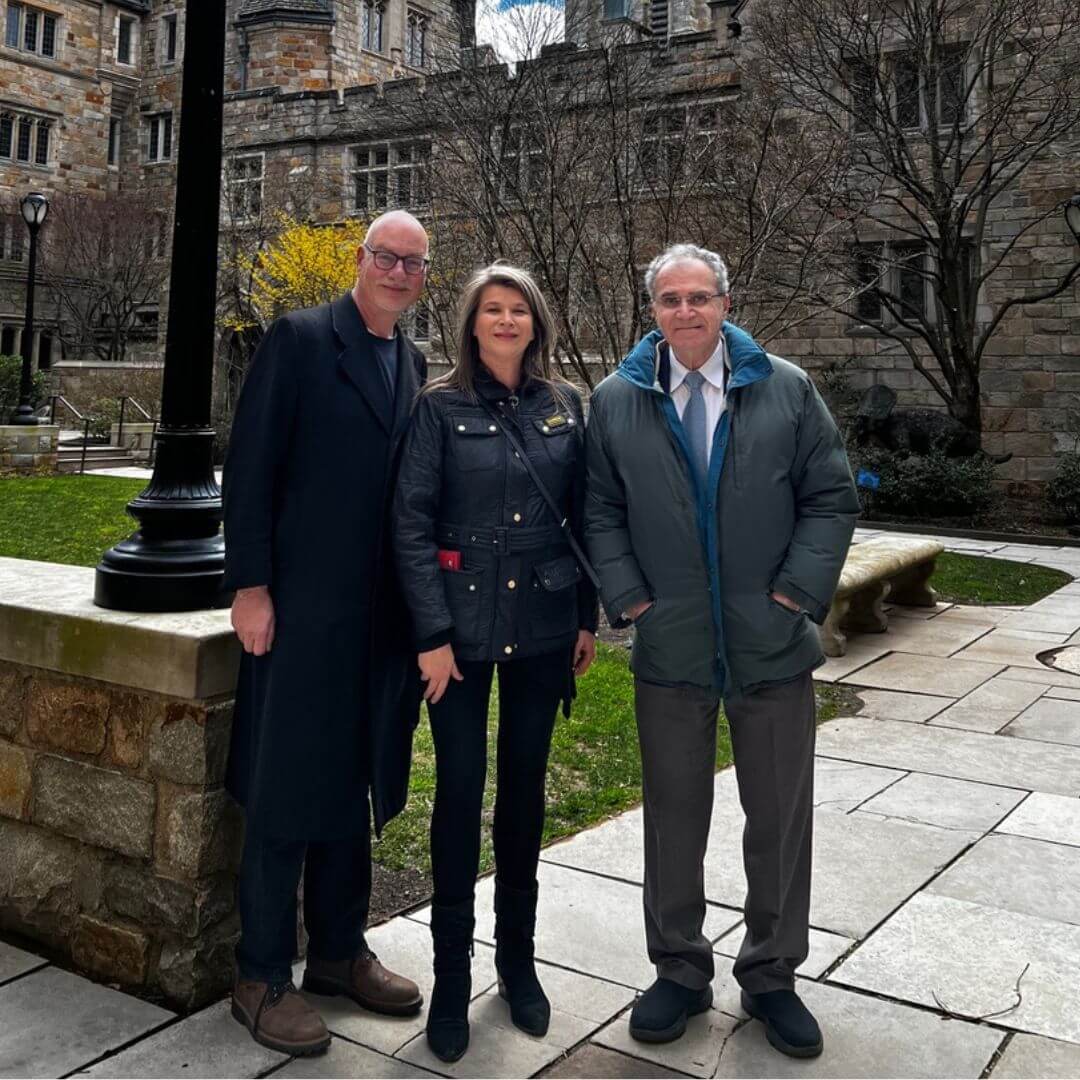
Dr John Elefteriades is one of the foremost authorities in the field of cardiothoracic surgery, with a distinguished career at Yale University, where he served as the Chief of Cardiothoracic Surgery. Renowned for his pioneering work in aortic disease, Dr Elefteriades has been at the forefront of advancing our understanding and treatment of aortic dissections and aneurysms. His extensive research and clinical expertise have significantly influenced current practices and patient care standards worldwide.
Dr Elefteriades has authored numerous influential books and contributed to many research papers on the subject, contributing profoundly to medical literature and education. Among his notable publications, as part of the pan-American and European team, are the 2024 EACTS/STS Guidelines for Diagnosing and Treating Acute and Chronic Syndromes of the Aortic Organ which, provides comprehensive insights into the diagnosis, management, and therapeutic strategies for aortic dissection. His works, along with his extensive list of research articles, serve as essential resources for clinicians, surgeons, and researchers in the field of cardiothoracic surgery and aortic disease.
His commitment to education, patient care, and innovation continues to inspire a new generation of medical professionals and has established him as a leading figure in the global medical community, particularly in the area of aortic disease.

